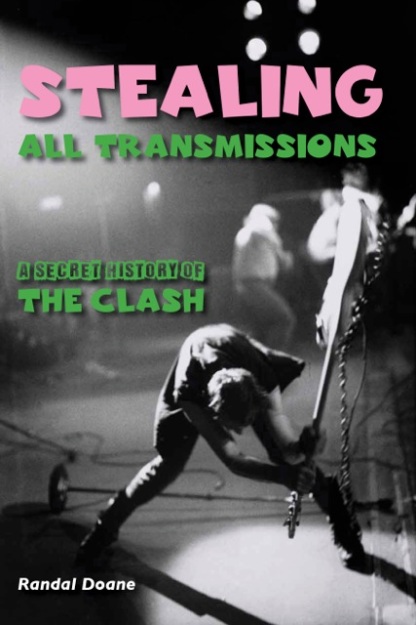Happy icy Sunday, folks! Not even in the days of icy fog in my youth in Stockton, CA, might I have imagined that I’d be celebrating a day’s high temperature of 28F as perfectly balmy. In fleeting moments, we’re all Bostonians now.
For today’s bit, I’m digging deeper into the themes of chapter 2, “From Sgt. Pepper’s to Born to Run: The Rise of Free-Form Radio,” from Stealing All Transmissions. Free-form radio, of course, had a key role in celebrating The Beatles, The Who, and others as artists, rather than worker bees making popular music, and I suggest that Bruce Springsteen played a key role in bridging the divide between the artistic pretensions of classic rockers and the pretensions of authenticity of the punks, including The Clash.
It was in Boston’s Real Paper, of course, back in May 1974, that Jon Landau pronounced “I saw rock and roll’s future, and its name is Bruce Springsteen.”  About the same time, Ken Emerson in Rolling Stone gave high marks to The Wild, the Innocent, and the E Street Shuffle, celebrating the “punk savvy” of the lyrics of “4th of July, Asbury Park (Sandy).” I have little idea what “punk” might mean here, other than representations of the working class, which perhaps in 1974 were in short supply, thanks to the artistic turn of rock, led by The Beatles.
About the same time, Ken Emerson in Rolling Stone gave high marks to The Wild, the Innocent, and the E Street Shuffle, celebrating the “punk savvy” of the lyrics of “4th of July, Asbury Park (Sandy).” I have little idea what “punk” might mean here, other than representations of the working class, which perhaps in 1974 were in short supply, thanks to the artistic turn of rock, led by The Beatles.
Now I’m a devotee of the The Beatles (and Springsteen), but The Beatles’ growth as musicians forged a divide between pop and rock. If they were, in 1964, a threat to youth morality (and eventually Christianity in particular, with Lennon and his “we’re bigger than Jesus now” quote), by 1967, they were regarded anew as purveyors of middlebrow art.
Following the release of Sgt. Pepper’s, Time magazine did a big feature on The Beatles,  and framed the new rock in the rhetoric of the middlebrow aesthetic: “With characteristic self-mockery, the Beatles are proclaiming that they have snuffed out their old selves to make room for the new Beatles incarnate. And there is some truth to it. Without having lost any of the genial anarchism with which they helped revolutionize the life style of young people in Britain, Europe, and the U.S., they have moved on to a higher artistic plateau.”
and framed the new rock in the rhetoric of the middlebrow aesthetic: “With characteristic self-mockery, the Beatles are proclaiming that they have snuffed out their old selves to make room for the new Beatles incarnate. And there is some truth to it. Without having lost any of the genial anarchism with which they helped revolutionize the life style of young people in Britain, Europe, and the U.S., they have moved on to a higher artistic plateau.”
Yes, on Plastic Ono Band, Lennon suggested that “a working class hero was something to be.” It couldn’t be him, though. And Springsteen, with his 1975 appearance at the Bottom Line, which was broadcast live on WNEW-FM at Richard Neer’s behest, solidified this feature of WNEW-FM, and–four years later–would be the source of The Guns of Brixton bootleg, from the September 21, 1979 concert of The Clash at the Palladium.
Keep warm out there, Clash-o-philes of the north. The winds have been more biting than Joe Strummer circa 1984!


